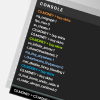This article was written with the support of theglobalgaming.com – one of the largest websites helping to solve even the most complex in-game issues.

Esports have become so popular that they’re as lucrative and corruptible as real life sports tend to be. CS:GO’s Esports scene is no different, and it suffered its fair share of eye-opening scandals.
Counter-Strike Global Offensive keeps steadily growing as one of the most popular games in the competitive Esports scene. Millions of dollars are funneled through competitive tournaments and Valve-sponsored Majors each year, and the circulation of such vast amounts of money is what makes it prone to corruption in the first place. Whether it be cheating or match fixing, players and even organizations have tried to play the system in order to maximize profits. This includes abusing broken in-game mechanics to gain an advantage over other players in tournaments. When a lot of money is in question, the lines are nearly always blurred.
Today we’ll be covering the biggest CS:GO Esports Scandals out there, and how each of them impacted the CS:GO community.
KQLY VAC Ban

KQLY, also known as Hovik Tovmassian, was quite popular in the French Counter-Strike scene. His career started in Counter-Strike Source, and he quickly rose to play in more popular teams such as LDLC and Titan esports in CS:GO. Team LDLC found enough success at the bigger tournaments and majors in 2014, which is what put KQLY on the map. Soon after leaving LDLC, he joined his former teammates in Titan and they proceeded to win Dreamhack Stockholm 2014.

Prior to this win, KQLY’s infamous jumpshot clutch against Virtus.pro’s “pashaBiceps” at the previous ESL:One Cologne 2014 is what spawned the famous KQLY style shot, and this is what drew a lot of attention to KQLY. And not shortly after the Stockholm Major on the 20th of November, KQLY was given a VAC (Valve Anti-Cheat) Ban. The KQLY style jumpshot might have had something to do with his cheating related ban, but jumpshots like that are possible without cheats.
iBUYPOWER Match-Fixing
iBUYPOWER’s CS:GO team in their prime had one of the best lineups in the North American scene, and they were arguably the best team NA had at the time. The potential to rival EU teams was there, but greed got the best of them. During CEVO Professional League Season 5 on the 20th of August, 2014 – a match between iBUYPOWER and NetcodeGuides.com was played. iBUYPOWER’S lineup consisted of Sam “DaZeD” Marine, Braxton “swag” Pierce, Josh “steel” Nissan, Tyler “Skadoodle” Latham, and Keven “AZK” Larivière.
An important thing to note is that NetcodeGuides was founded by iBUYPOWER’s captain Sam “DaZeD” Marine and co-founded by Casey “Caseyfoster” Foster. We all knew iBP was going to win this match, but upon watching the match you can see that iBUYPOWER blatantly threw distinct gunfights and played unusually.

At first, no one had concrete proof this match was fixed, but in January of 2015 proof was released and an article by an esteemed esports journalist called Richard Lewis exposed the entire incident. This scandal led to the permanent ban from all future Valve-sponsored events for 4 players from the iBP roster, 2 individuals closely related to the roster, and NetcodeGuides.com’s Co-founder. Companies like Dreamhack and ESL eventually unbanned the 4 former players from the roster, but they still can’t compete in any Valve-sponsored events.
The Word.exe Incident

The Indian Counter-Strike scene is quite large, but Indian teams never really made it far. OpTic India was Optic’s attempt at utilizing the potential talent of India’s CS:GO scene, and getting India’s best players the support system needed for success. Sadly, this backfired. During the ZOWIE eXTREMESLAND 2018 tournament in China, a player called Nikhil “forsaken” Kumawat from Optic India’s team displayed some suspicious behavior in the form of insane shots and in-game awareness. This all happened in the match against Vietnam’s Revolution, and admins paused the match to investigate his computer.

Upon investigation, they found a weird program called Word.exe, and this was indeed the source of his hacks. At first, forsaken was hesitant to show the admin team his computer, even closing the tab in which his hacks were showing. This all led to the decimation of his public image, and many people mocked him for his stupidity. Forsaken later came out apologizing to his team and Optic India’s management, but the damage was already done since the entire team was disbanded shortly after the incident. In addition to destroying his image, he seriously hurt or even ended the careers of his innocent teammates.
The Infamous Spectating Glitch

This is one of those scandals that completely shook the foundations of the CS:GO esports scene. It started on the 31 of August, 2020 with Michal Slowinski, a well-known esports Referee pointing out a bug that allowed coaches to position their cameras in key locations that would give them information they shouldn’t have had. The appearance of these news prompted the ESIC(Esports Integrity Commission) to conduct an extensive investigation into the usage of this glitch. About 25.000 demos from 4 years of online competitive CS:GO games were reviewed, and AI inspectors were even utilized alongside human ones due to the sheer amount of data that needed to be inspected.

This included famous teams like Natus Vincere, FaZe Clan, Team Dignitas, HellRaisers and so on. 37 coaches were reprimanded, being given 3 year bans as a result. These news put the legitimacy of many important online matches at risk, which is another reason why many people in the E-Sports community prefer offline LAN tournaments. A lengthy report discussing the entire case was later released, and it showed just how much research went into this.
Human nature will never change, but it’s important for us to be transparent about these issues and call it out when needed. Money and wealth aren’t the only factors at play here, entire careers depend on the morality of certain individuals.











